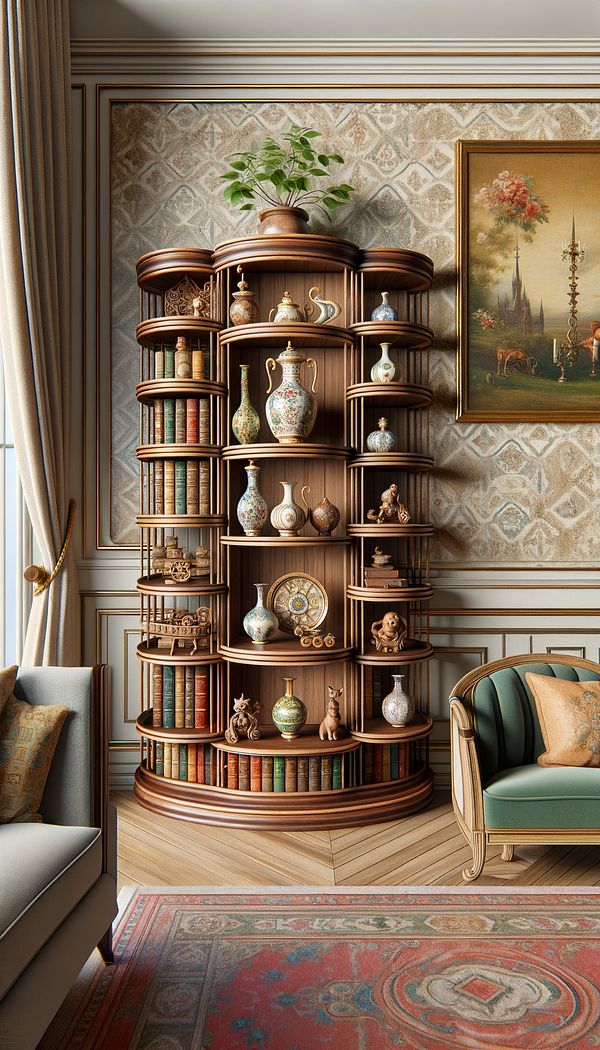What is What-Not?
A what-not is a piece of furniture incorporating open shelves for the display of ornaments.
Description
A what-not is a quintessential piece of furniture that embodies the charm of displaying decorative items and small collections. It consists of tiers of open shelves, often graduated in size from the top down, designed solely for the purpose of exhibition and storage of ornaments, books, and various small items. Traditionally crafted from wood, what-nots have evolved in style and materials over the years, reflecting changes in interior design trends.
The concept of the what-not dates back to the 18th century, finding its origins in English decor. It was particularly popular during the Victorian era, where the love for collecting and showcasing trinkets, ceramics, and curiosities was at its peak. The what-not provided an elegant solution for the Victorian household’s desire to display their prized possessions while adding a decorative element to the room.
Modern what-nots can vary greatly in design, but they all share the core principle of open, accessible shelving. They can be freestanding or wall-mounted, and materials range from classic woods to metals and glass, offering versatility to fit any design style. This piece of furniture is not only functional but also serves as a focal point in a room, enabling homeowners to personalize their space with items that tell their story.
Usage
In Victorian-inspired interiors, a what-not might be placed in a living room or study, laden with an eclectic mix of figurines, vases, and books. In more contemporary settings, it could be used in a minimalist design scheme to showcase select art pieces or decorative objects, effectively playing into the less-is-more aesthetic.
FAQs
-
Can a what-not be used for storage?
Absolutely. While primarily designed for display purposes, a what-not can also be an effective storage solution for small items that you wish to keep accessible yet organized.
-
Are what-nots available in different styles?
Yes, what-nots are available in a variety of styles, from traditional to modern, making it easy to find one that complements your interior design.
-
How do I choose the right what-not for my space?
Consider the size of the space where it will be placed, the material that best fits your interior style, and the type of items you plan to display. Ensure the what-not complements both the aesthetic and functional needs of your room.
Practical Application
When incorporating a what-not into your interior design, consider its placement carefully to ensure it enhances the room without overwhelming the space. Utilize its shelves to create appealing arrangements of items that reflect your personality and style. Keep in mind the balance and scale of items displayed to achieve a harmonious look.
-
Air BedAn air bed is a bed or mattress filled with air.
-
DresserA dresser is a type of furniture with drawers for storing clothes and other items.
-
DowelA dowel is a cylindrical rod, typically made from wood, plastic, or metal.
-
FarmhouseFarmhouse is a design style that blends rustic and modern elements to create a cozy, welcoming atmosphere.
-
Bird’s-EyeBird’s-Eye is a distinctive pattern found in maple wood.
